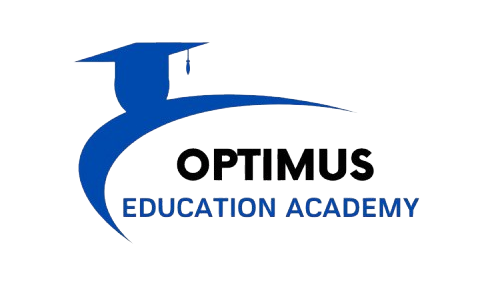BSc (Hons) Finance and Accounting
This program is ideal for students aspiring to a career in finance and accounting, as well as those seeking management roles in the accounting sector. It also welcomes mature students returning to education who wish to obtain a degree. The Integrated Foundation Year provides essential skills, such as research and communication, to support academic and professional success.

Course Overview
The BSc (Hons) in Finance and Accounting provides a strong foundation in financial principles and accounting practices, preparing you for careers in accounting, financial services, and auditing. The program equips you with high-level technical expertise and a deep understanding of finance in business contexts.
If you’re interested in professional accounting, this course aligns with ACCA requirements. Expert-led modules cover financial auditing, reporting, taxation, and broader business concepts like economics, strategy, and performance. You’ll also develop essential skills in communication, data analysis, teamwork, and problem-solving.
This degree blends academic learning with practical application, ensuring you’re ready to navigate today’s financial landscape. The final-year dissertation allows you to apply research skills and deepen your understanding of finance and accounting.
Key program benefits include: – Guidance from experienced lecturers in finance, accounting, and business management.
– Development of core skills in financial management, planning, reporting, and taxation.
– A major final-year project tailored to your professional interests.
– Insights from professionals with experience in multinational corporations and SMEs.
– Opportunities to align studies with professional certifications like ACCA.
Intakes
September, January, May
Duration
4 years including Foundation year
Mode of Study
Full-time
Awarded Degree
BSc (Hons) Finance and Accounting
UCAS Points
104 Points for 3 Year Degree, 48 points for Foundation Degree
Fees
TBA
- Curriculum
- Entry Requirements
- Teaching and Assessment
- Employability
- Tuition Fees & Financial Support
Foundation Level
– Communication Skills
– Data Skills
– Professional Development Skills
– Research Skills
Year One
– Academic and Professional Skills
– Business Planning
– Introduction to Financial Accounting
– Business Environment
Year Two
– Financial Reporting for Business
– Taxation for Business
– Legal Aspects of Business
– Managing Business Performance
Year Three
– Financial Management in Organizations
– Business Strategy
– Undergraduate Major Project
– Financial Auditing
Standard Entry Requirements
– A minimum of 104 UCAS tariff points.
Foundation Year Entry Requirements
– 48 points for a Foundation Degree.
– Any subjects are acceptable at Level 3.
– Additionally, five GCSEs at grade C/4 or above (or equivalent), including English and Mathematics, are required.
English Language Requirements
– Students whose first language is not English and who have not studied in the UK previously must have an IELTS score of 6.0 or equivalent.
We recognize that our students have diverse learning needs and styles, so we employ a variety of teaching methods, including online options where suitable. Lectures introduce key course concepts, while seminars provide an opportunity for deeper exploration of the subjects. Tutorials create a supportive environment for asking questions, ensuring clarity on the topics discussed in lectures and seminars.
To bridge academic theory with real-world practice, we utilize case studies and practical scenarios, giving you valuable insights into contemporary practices in accounting, finance, and business. You will also engage in significant guided independent study, including library research, background reading, preparation for seminars and tutorials, and assignment work.
Guest lectures and presentations from industry professionals will further enhance your knowledge and understanding. Assessments will include time-constrained exams, essays, reports, presentations, and portfolios, all of which contribute to your final module mark and demonstrate your achievement of the learning outcomes.
Additionally, we incorporate various assessment methods to support your learning, provide feedback, and guide your development. However, these assessments do not contribute to your final module mark.
EU nationals who meet residency requirements (settled or pre-settled status) may qualify for ‘Home’ fee status. If you do not meet these criteria, overseas fees will apply. Irish citizens residing in the UK or Ireland are also eligible for ‘Home’ fee status under the Common Travel Area arrangement. For further details, please visit the student finance page for EU students at [www.gov.uk/studentfinance]
For the 2023-2024 academic year, the maximum government-approved undergraduate tuition fee for UK students is £9,250 per year. The University is permitted to charge this fee as long as it has an approved Access and Participation Plan for 2023-2024 and maintains its current rating in the Teaching Excellence Framework.
Funding Your Studies
You can seek assistance with your fees from the government by visiting [www.gov.uk/studentfinance]. This support may include a Tuition Fee Loan, Maintenance Loan, or Maintenance Grant.
A Tuition Fee Loan covers your upfront fees and is paid directly to your university or college. You will need to repay this loan after you complete your course and begin earning £26,575 or more per year. Both full-time and part-time students are eligible to apply.
If you qualify, you can also apply for a Maintenance Loan, which is deposited into your bank account at the start of each term. This loan must be repaid once you leave your course and your earnings exceed £26,575. For more details, please visit www.gov.uk/studentfinance.
Maintenance Grants are also paid directly to your bank account at the start of term. Unlike loans, these grants do not need to be repaid; however, any amount received will reduce the total Maintenance Loan you can apply for.
New students must demonstrate residency in the UK for five years prior to the start of their course to be eligible for living cost support from Student Finance England.
Fees
For course fees, please click here or contact us at optimuseducation.
FAQs
Is the BSc (Hons) Accounting & Financial Management with Foundation Year the right choice for me?
The BSc (Hons) Accounting & Financial Management with Foundation Year is an ideal program for those aspiring to begin a career in financial management or start their own business. This course offers a comprehensive understanding of current principles and practical skills, providing you with the foundation necessary for success in the fields of accounting and financial management.
What will I gain from this course?
This four-year program provides a clear path to building your expertise in accounting and financial management. Starting with a foundation year, you’ll be introduced to essential concepts, preparing you for the challenges of undergraduate studies. In the following three years, you’ll expand your industry knowledge and develop the practical skills that employers highly value.
What careers can I pursue after completing the BA (Hons) Global Business and Entrepreneurship with Foundation Year course?
Upon completing the course, you will be equipped to channel your entrepreneurial spirit and apply your skills to launch a business. Other potential career paths include:
– Business Consultant
– Business Strategy Analyst
– Entrepreneur or Startup Founder
– Innovation Manager
– International Sales Representative
– Retail Management Specialist
– Supply Chain Manager.
What career paths can I pursue after completing this degree?
Upon completing this degree, you’ll be equipped with the skills to pursue a wide range of roles in accounting and financial management, such as:
– Auditor
– Company Secretary
– Credit Analyst
– Credit Manager
– Data Analyst
– Finance Manager
– Financial Accountant
– Financial Advisor
– Forensic Accountant
– Management Accountant
– Public Finance Accountant
– Tax Advisor
Where is the course offered?
The BSc (Hons) Accounting & Financial Management with Foundation Year is available at our campuses in Birmingham, London, Leeds, and Manchester. Each campus offers a wide range of resources and student support to enrich your learning experience and extracurricular activities.
Does the course fit my schedule?
At optimus education, we recognize the importance of flexibility. Our course is offered on weekdays, evenings, and weekends, providing you with the opportunity to balance your studies alongside other personal or professional commitments.
Am I eligible to join this course?
Am I eligible to join this course?
The course also provides opportunities to apply theoretical concepts to real-world entrepreneurial situations, helping you sharpen your business planning skills. You will explore the theory and practice of entrepreneurship in various contexts, with an emphasis on how strategy, tactics, and innovation influence different business models.
What will I learn during the course?
This program provides a thorough understanding of the financial industry, combining theoretical insights with practical skills throughout your studies. The foundational year equips you with essential industry concepts, while Year 1 covers important topics such as Management Accounting I and the Dynamic Business Environment. In Year 2, you’ll explore more specialized subjects, including Management Accounting II, Business and Corporate Law, Financial Reporting, and Leadership and Change. Your final year will feature mandatory modules, with the option to complete a Dissertation or a Business Ethics module alongside a Research Project.
How will I be assessed?
The course includes both formative and summative assessments to support your learning and development. Formative assessments, which take place before the formal summative assessments, are designed to help you build your skills and understanding without affecting your final module marks. Each module typically features at least one formative assessment, offering feedback from your course team. Participating in these assessments is essential for your successful progression through the Foundation Year and beyond.
Formal summative assessments typically occur at the end of each module and may include written exams, coursework (such as reports, portfolios, essays, and presentations), and other evaluation methods. The marks from these assessments contribute to your final module grade. Assessment methods are reviewed annually and may be updated based on feedback from students and External Examiners. An External Examiner is an independent academic expert appointed by Canterbury Christ Church University to ensure the academic standards of your course are upheld.
